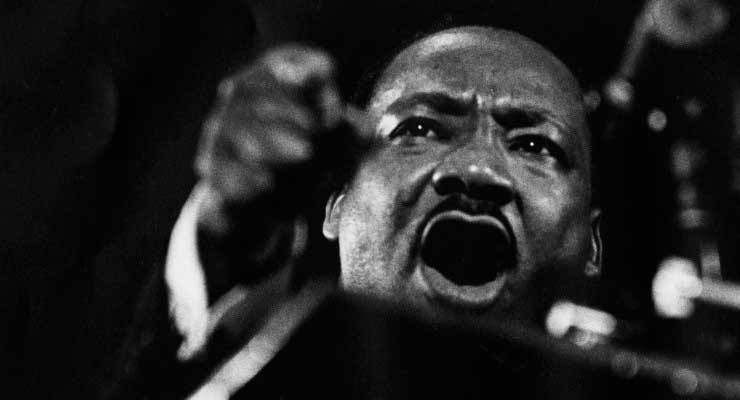
Fourth in a series of posts on MLK.
“But the end is reconciliation; the end is redemption; the end is the creation of the beloved community.”[1]
The beloved community may seem a distant utopia but it was a rhetorical strategy of enormous and immediate use. The beloved community evoked a world based on community values of mutual aid and cooperation, the recognition of interdependence, shared responsibility and respect freely given.
This community would aim to achieve economic and social justice. Big love and non-violence would be the means to address conflict. The political appeal of the civil rights movement was greatly magnified by adopting rhetorical strategies that prefigured the wanted world. Unending criticism, even resistance and opposition to war, racism or the corporate power will only get us so far. We can look at the thousands of experiments in community building — in Detroit and around the country — to measure our progress toward the beloved community.
Let us learn this: movement building requires positive affirmations of the good life.
 In human imagination, the greatest good is usually expressed in symbol or in narrative, not in critical discourse. King emphasized universal values and articulated the lofty aspirations of the beloved community because community is the social form through which shared understandings and identities take on tangible life as human activity. It is hard to even imagine — let alone build — a movement not based on a positive vision of community.
In human imagination, the greatest good is usually expressed in symbol or in narrative, not in critical discourse. King emphasized universal values and articulated the lofty aspirations of the beloved community because community is the social form through which shared understandings and identities take on tangible life as human activity. It is hard to even imagine — let alone build — a movement not based on a positive vision of community.
We need prefigurative politics that can give us a glimpse of a better world and we need to see that better world embodied, at least occasionally, even if partially, in the movement itself.
[E]nds are not cut off from means, because the means represent the ideal in the making, and the end in process…the means represent the seed and the end represents the tree.….[M]eans and ends must cohere because the end is preexistent in the means.[2]
Our attempts to make means and ends cohere is a difficult and demanding political practice, but practice we must if we aspire to infuse social movements with prefigurative politics. It was that fusion that gave the last revolution its spiritual appeal and political power.
Only such a movement can appeal to the whole person and to all the people.
All citations are from, A Testament of Hope
[1] Facing the Challenge of A New Age, 140.
[2] A Christmas Sermon on Peace, 255. See also 45.
Leave a Reply